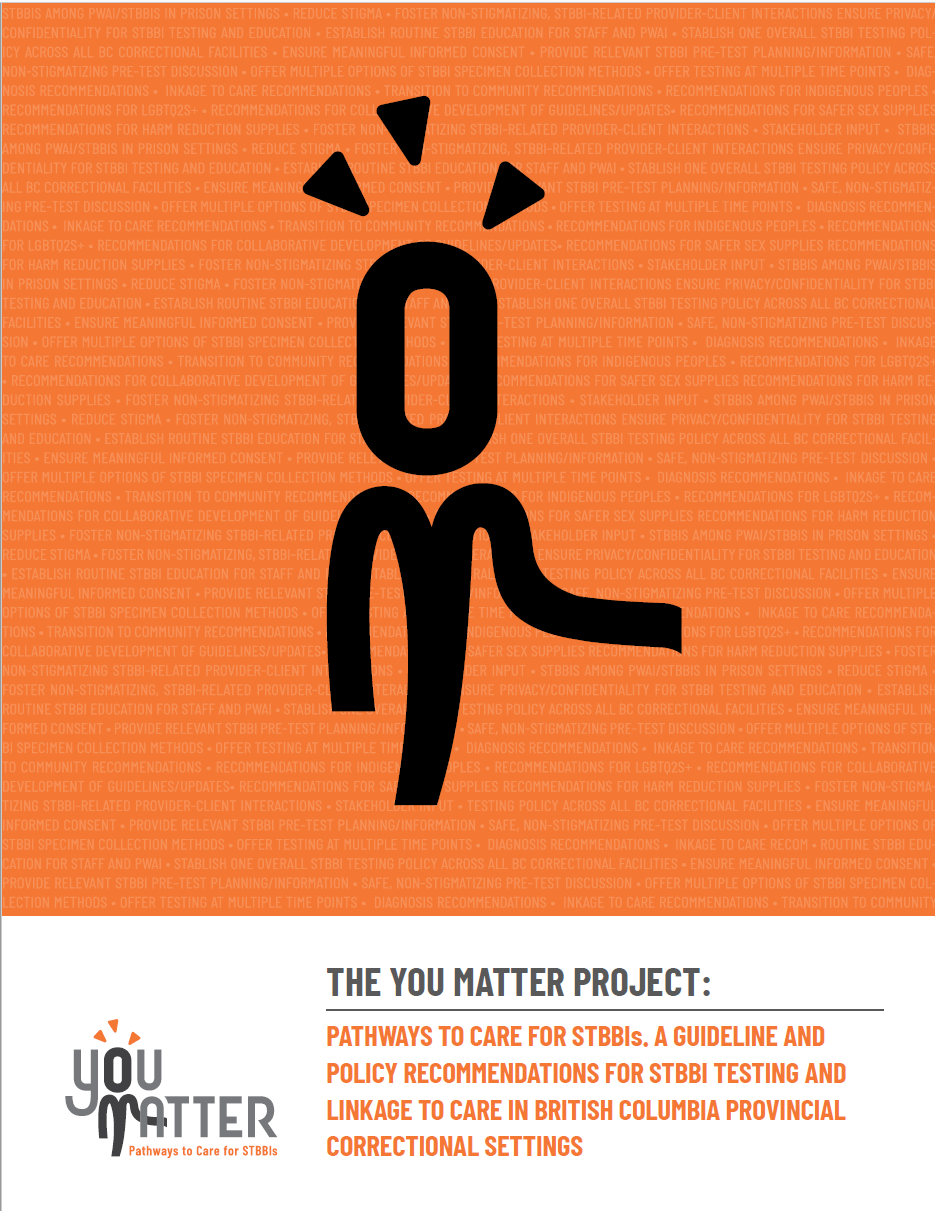The You Matter Project: Pathways to care for STBBIs. A guideline and policy recommendations for STBBI testing and linkage to care in British Columbia Provincial Correctional Settings
Prior to this project, there were no publicly available STBBI opt-out or universal testing and linkage to care policies and guidelines for any provincial corrections institutions in Canada. Although STBBI screening is available on request in correctional centres across Canada, without accepted best practices for opt-out or universal STBBI testing and linkage to care, there is inconsistent implementation of pre- and post-test STBBI counselling in corrections, and STBBI tests during reception at corrections are not universally or even routinely offered in many facilities, resulting in poor linkage to care for STBBIs among PWAI.
The development of these foundational policies and guidelines for opt-out or universal STBBI testing and linkage to care in corrections at reception aims to create accountability frameworks, streamline care pathways, reduce the occurrence of unintended harms, and increase the likelihood that PWAI will have positive experiences when engaging in healthcare.
These were developed with input from health care workers, corrections staff, and PWAI, with the aim to catalyze system changes in how health care services are provided in correctional institutions – by ensuring staff are well-educated in violence and trauma-informed care[1], cultural safety[2], meaningful consent[3], and non-stigmatizing protocols around testing[4].
Adherence to these policies and guidelines for opt-out or universal STBBI testing and linkage to care at reception could: (a) enhance the participation and success of the implementation of opt-out or universal STBBI testing and linkage to care by Correctional Health Services; (b) improve PWAI linkage to care for STBBIs; (c) facilitate broader system-level changes in provincial corrections pertaining to health services engagement, such as reduced stigma and increased violence and trauma informed care; (d) facilitate PWAI engagement in health care services upon re-entry to community, including for addictions-related care, and (e) serve as a model of change that could be adapted for other Canadian regions or internationally.
To ensure that policies and guidelines incorporate and balance experiences and preferences of PWAI/PWUD and corrections staff, this project included consultations, interactive workshops, and communications with: PWAI and people with experience of incarceration, BC’s Correctional Health Services staff, and BC Corrections staff.

